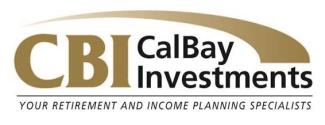Asset Protection in Estate Planning
You're beginning to accumulate substantial wealth, but you worry about protecting it from future potential creditors. Whether your concern is for your personal assets or your business, various tools exist to keep your property safe from tax collectors, accident victims, health-care providers, credit card issuers, business creditors, and creditors of others.
To insulate your property from such claims, you'll have to evaluate each tool in terms of your own situation. You may decide that insurance and a Declaration of Homestead may be sufficient protection for your home because your exposure to a claim is low. For high exposure, you may want to create a business entity or an offshore trust to shield your assets. Remember, no asset protection tool is guaranteed to work, and you may have to adjust your asset protection strategies as your situation or the laws change.
Liability insurance is your first and best line of defense
Liability insurance is at the top of any plan for asset protection. You should consider purchasing or increasing umbrella coverage on your homeowners policy. For business-related liability, purchase or increase your liability coverage under your business insurance policy. Generally, the cost of the premiums for this type of coverage is minimal compared to what you might be required to pay under a court judgment should you ever be sued.
A Declaration of Homestead protects the family residence
Your primary residence may be your most significant asset. State law determines the creditor and judgment protection afforded a residence by way of a Declaration of Homestead, which varies greatly from state to state. For example, a state may provide a complete exemption for a residence (i.e., its entire value), a limited exemption (e.g., up to $100,000), or an exemption under certain circumstances (e.g., a judgment for medical bills). A Declaration of Homestead is easy to file. You pay a small fee, fill out a simple form, and file it at the registry where your deed is recorded. Dividing assets between spouses can limit exposure to potential liability Perhaps you work in an occupation or business that exposes you to greater potential liability than your spouse's job does. If so, it may be a good idea to divide assets between you so that you keep only the income and assets from your job, while your spouse takes sole ownership of your investments and other valuable assets. Generally, your creditors can reach only those assets that are in your name.
Business entities can provide two types of protection — shielding your personal assets from your business creditors and shielding business assets from your personal creditors
Consider using a corporation, limited partnership, or limited liability company (LLC) to operate the business. Such business entities shield the personal assets of the shareholders, limited partners, or LLC members from liabilities that arise from the business. The liability of these owners will be limited to the assets of the business.
Conversely, corporations, limited partnerships, and LLCs provide some protection from the personal creditors of a shareholder, limited partner, or member. In a corporation, a creditor of an individual owner is able to place a lien on, and eventually acquire, the shares of the debtor/shareholder, but would not have any rights greater than the rights conferred by the shares. In limited partnerships or LLCs, under most state laws, a creditor of a partner or member is entitled to obtain only a charging order with respect to the partner or member's interest. The charging order gives the creditor the right to receive any distributions with respect to the interest. In all respects, the creditor is treated as a mere assignee and is not entitled to exercise any voting rights or other rights that the partner or member possessed.
Certain trusts can preserve trust assets from claims
People have used trusts to protect their assets for generations. The key to using a trust as an asset protection tool is that the trust must be irrevocable and become the owner of your property. Once given away, these assets are no longer yours and are not available to satisfy claims against you. To properly establish an asset protection trust, you must not keep any interest in the trust assets or control over the trust.
Trusts can also protect trust assets from potential creditors of the beneficiaries of the trust. The extent to which a beneficiary's creditors can reach trust property depends on how much access the beneficiary has to the trust property. The more access the beneficiary has to the trust property, the more access the beneficiary's creditors will have. Thus, the terms of the trust are critical.
There are many types of asset protection trusts, each having its own benefits and drawbacks. These trusts include:
• Spendthrift trusts
• Discretionary trusts
• Support trusts
• Personal trusts
• Self-settled trusts
Since certain claims can pierce domestic protective trusts (e.g., claims by a spouse or child for support and state or federal claims), you can bolster your protection by placing the trust in a foreign jurisdiction. Offshore or foreign trusts are established under, or made subject to, the laws of another country (e.g., the Bahamas, the Cayman Islands, Bermuda, Belize, Jersey, Liechtenstein, and the Cook Islands) that does not generally honor judgments made in the United States.
A word about fraudulent transfers
The court will ignore transfers to an asset protection trust if:
• A creditor's claim arose before you made the transfer
• You made the transfer with the intent to defraud a creditor
• You incurred debts without a reasonable expectation of paying them
CalBay Investments and LPL Financial do not provide legal advice or tax services. Please consult your legal advisor or tax advisor regarding your specific situation.
